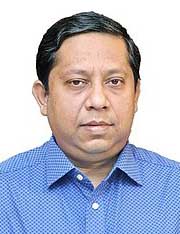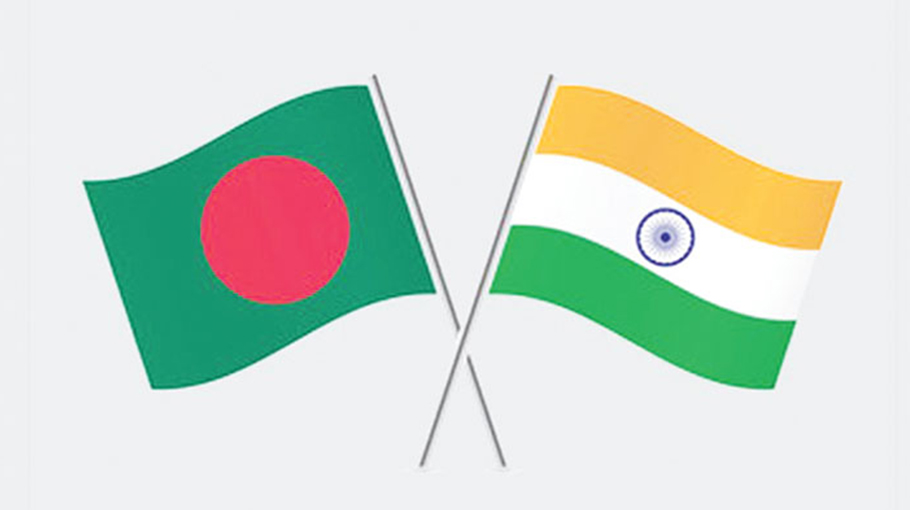Eternal friends
Bangladesh-India relationship has attained today’s height through many ups and downs

The nine months course of liberation war of Bangladesh was full of ups and downs. At times it was the Mukti Bahini that had the upper hand, while at times it was the opposite. Similar examples are there in December also. December 16 is the most glorious day in the history of the Bengali nation, but this December also has 14, when the sacred soil of the land was turned red by the blood of our brutally assassinated martyred intellectuals. Another glorious date in December is 6. Today is the date in December 1971, when India followed by Bhutan recognized Bangladesh as an independent country. December 16 is not only the most glorious day in our calendar, but the same goes for India too. The emergence of Bangladesh made the wearied most two-nation theory - the basis of partition of India in 1947 and the creation of Pakistan null and void. Besides as of today this is the only absolute victory of India over Pakistan. The surrender of more than ninety thousand Pakistani servicemen in broad daylight in the winter afternoon of December 16 in the then racecourse ground of Dhaka is not only the largest military surrender in the post-World War II era, but also one of the largest surrenders the world has ever experienced in its recorded history. And this common cause of rejoice for both Bangladesh and India was only made possible by the unparalleled collaboration between our two governments and the enormous sacrifice made by the two people.
Read more: 50 years of Bangladesh-India relations
Soon after their surrender on December 16, 1971 the defeated Pakistani forces launched an attack on the Indian forces and Mukti Bahini in Sitakundo in Chattogram, which inflicted huge casualties on the Indians and Mukti Bahini, who were caught unprepared by this surprise attack. Last year His Excellency Bikram Doraiswami, Indian High Commissioner to Bangladesh inaugurated a sculpture in Sitakundo dedicated to those fallen Bangladeshi and Indian heroes. The sculpture has been named, ‘Eternal Friends’. Such sacrifice by the people of one country for securing the independence of another is extremely rare in world history. Bangladesh is one such rare example. The emergence of Bangladesh has thus sealed the fate of the two neighbors for eternity. The relationship between countries is never constant. Countries that are friends can be foes tomorrow. Third parties may also remain active behind the curtain to foil the friendly relationship between two countries for their own gain. The same may also apply to Bangla-Indo relationship. It is for certain than multiple players will like to see deterioration in our friendly ties. However if we allow that to happen, that will justify the two-nation theory and creation of Pakistan and most importantly will be sheer disregard to the ultimate sacrifice made by millions of Bangladeshis and thousands of Indians in securing an independent Bangladesh.
Bangabandhu Sheikh Mujibur Rahman and late Indian
PM Indira Gandhi took our bilateral relationship to
unprecedented heights soon after the liberation of Bangladesh
One more issue was sealed on December 16, 1971 and that is, no matter whatever equation applies wherever in the world, one equation will remain constant - Pakistan will remain the common and most heinous enemy of Bangladesh and India till eternity. USA and China, who opposed us yesterday are not the same to us today and similarly the relationship between India and USA today may be contradictory to the Indo-Soviet relationship of the bygone days. This is not at all surprising given the changing world order in the reality of 4th industrial revolution, global village and the COVID-19 pandemic. This is hard reality of today’s world order. However this reality will never come into effect when the option is Pakistan to both Bangladesh and India. The sacrifice made by our forefathers have sealed the minimum scope of minimal concession to Pakistan either by Bangladesh or India.
Bangladesh-India relationship has attained today’s height through many ups and downs. Bangabandhu Sheikh Mujibur Rahman and late Indian PM Indira Gandhi took our bilateral relationship to unprecedented heights soon after the liberation of Bangladesh. Withdrawal of Indian Army from Bangladesh before our first Independence Day, signing of 25 years friendship treaty, constitution of Joint River Commission and agreement to resolve the land boundary issue are some of the unique examples that were achieved during the brief three and half years tenure of Bangabandhu. The bilateral relationship took an about turn after the assassination of Bangabandhu in 1975. The Pakistan backed successive governments of General Zia, General Ershad and Mrs. Khaleda Zia turned Bangladesh into a safe heaven for Indian insurgents. The relationship was put back on track after PM Sheikh Hasina took to office for the second term in Bangladesh in 2009. Bangladesh has since then embraced India with a number of friendly gestures like, land and river transit, allowing India to access Chattogram and Mongla sea ports, increased land and rail connectivity and so on. On the other hand, India has also reciprocated by resolving long unresolved land and sea boundary issues, participating in infrastructural development of Bangladesh and reduction of trade deficit between the two countries, which is now tilted towards India. We have seen such collaboration between the two countries during the ongoing COVID-19 pandemic too as they stood beside each other in each other’s times of need. If such collaboration continues, it can be safely forecasted that the two countries will not only be example to the rest of the world for their exemplary development, but Bangla-Indo relationship will also become role model for the globe.
Today on Maitri Dibosh, when we are celebrating the golden jubilee of India’s recognition of independent Bangladesh, the question that comes to mind logically is where do we foresee the bilateral ties between Bangladesh and India in the future. The answer is quite straight forward. It can not be denied that we have not been able to uphold the responsibility bestowed upon us by our martyrs at times in the past, by which we have actually disgraced us in front of Pakistan and the pro-Pakistani elements hiding amongst us in Bangladesh and in India. However no matter how small or large the problem is, in the future whenever we intend to point fingers to each other, we must remember that if we do so, this will only be sheer display of disregard to our fallen martyrs. This is my humble reminder to today’s generation and future leadership of Bangladesh and India on this 50th Maitri Dibosh.
Professor Mamun Al Mahtab (Shwapnil) is Head, Interventional Hepatology Division
Bangabandhu Sheikh Mujib Medical University and Member Secretary, Sampritee Bangladesh



